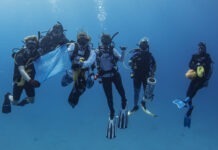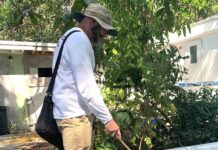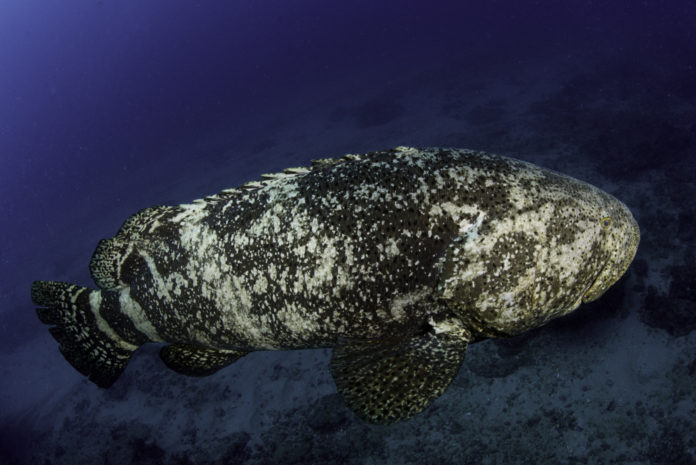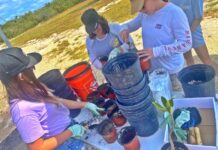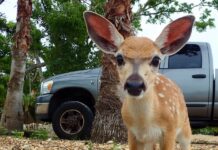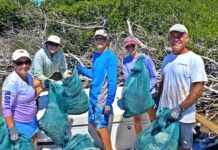Harvesting of goliath grouper will be allowed in state waters, albeit on a limited, regulated basis, beginning in spring 2023. While much of the Keys remains off limits, a set number of goliath grouper harvesting will be permitted at a nearby national park.
An abundance of goliath grouper in Florida prompted state wildlife officials to consider allowing a limited harvest of the fish protected since 1990. Access to the goliath resource is currently provided through catch-and-release fishing and diving ecotourism opportunities. That changes beginning next year with the Florida Fish and Wildlife Conservation Commission’s approval this week to allow 200 harvest permit tags for recreational harvest of goliath grouper in state waters.
Waters off the Florida Keys largely remain off limits for harvesting. Per the rule, no harvesting is allowed from Martin County south through the Atlantic coast of the Keys. St. Lucie River and its tributaries and Dry Tortugas Park are also off limits.
The season would kick off March 1 and go through May 31 each year.
Of the 200 goliath groupers permitted for harvesting each year, 50 are allowed to come from the Upper Keys’ backyard — Everglades National Park.
“Staff coordinated with Everglades National Park (ENP) in development of goliath management measures, and ENP was interested in measures that were consistent with ENP’s purpose and fundamental values,” an FWC report states on harvest limits. “This included limiting the number of goliath that could be taken from within ENP.”
FWC manages goliath in state waters, while the U.S. federal waters are managed by the Gulf of Mexico Fishery Management Council and the South Atlantic Fishery Management Council.
An angler wishing to harvest one goliath grouper per open season needs a recreational goliath grouper harvest permit and tag that would be issued via a random-draw lottery. The cost to enter the lottery is $10. Floridians awarded a harvest tag must pay a $150 permit fee, while those out of the state who get a tag pay $500.
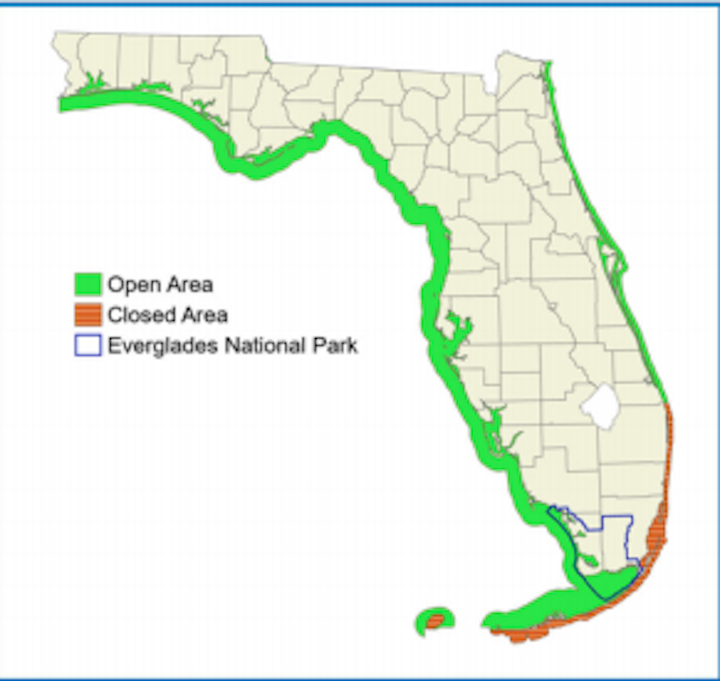
Goliath grouper over 36 inches in length can’t be harvested, as well as those often seen while diving underneath the waters of the Florida Keys. Harvested goliath would need to measure within a slot limit of 24 to 36 inches total length. A previous draft rule had the slot limit from 20 to 36 inches total length.
“After decades of closure to this fishery, we welcome this opportunity for a highly regulated, limited take of goliath grouper,” FWC Commissioner Robert Spottswood said in a statement, adding that post-harvest data reporting requirements will help guide future management decisions for this species.
An FWC report on the draft rule proposal states that fishery managers, researchers and fishermen are seeing increased goliath grouper numbers in Florida. There were no regulatory measures in place for goliath in state or federal waters prior to 1983. With no regulations, the goliath population experienced a severe decline from the 1950s through the 1980s. The harvest ended in state and federal waters in 1990.
“Goliath is a rebuilding stock that is becoming more abundant in many parts of Florida and is a species that serves an important role in the marine ecosystem,” the FWC report states. “As the abundance of goliath has increased, so has the frequency of interactions and conflicts with fishermen and divers.”
Attempts to quantify the goliath’s growing numbers through a traditional stock assessment were rejected by independent expert reviewers and the federal fishery management councils’ scientific advisors. The FWC’s report states that it’s because of unknowns surrounding the goliath’s life history and uncertainty about maximum age, as well as the absence of long-term data and lack of information about the stock outside the southeastern U.S.
In addition to commission meetings and workshops, the FWC said it’s gathered stakeholder comments since 2017. The new rules take effect July 1, 2022, with the first harvest season starting March 1, 2023.


